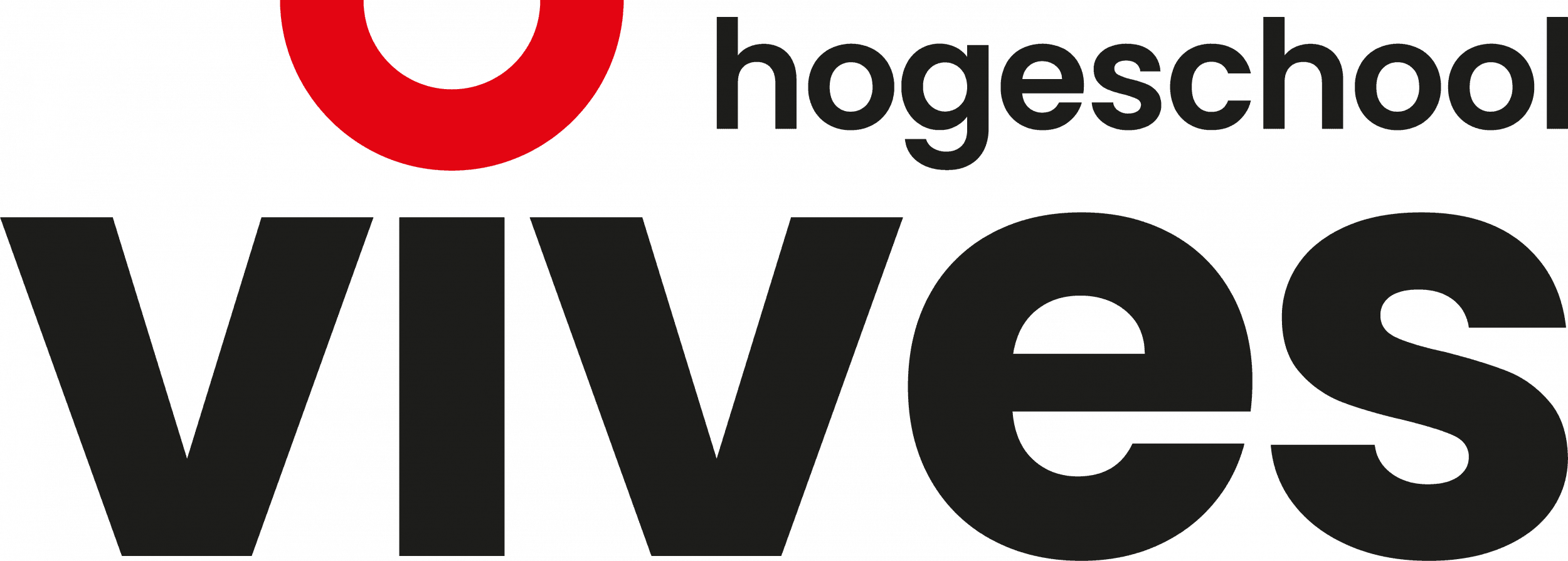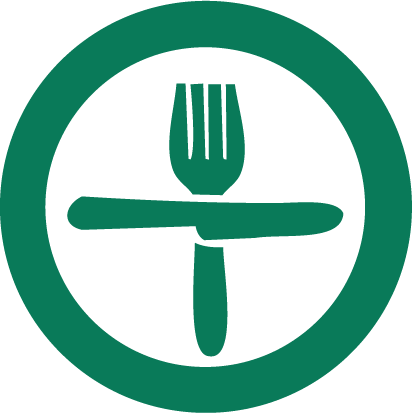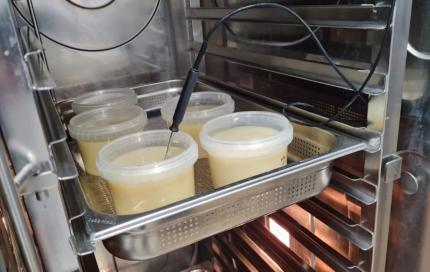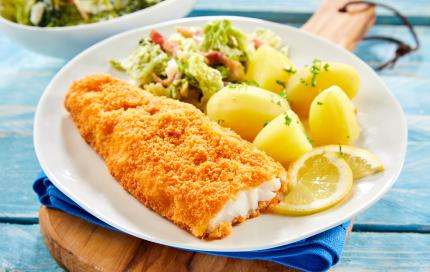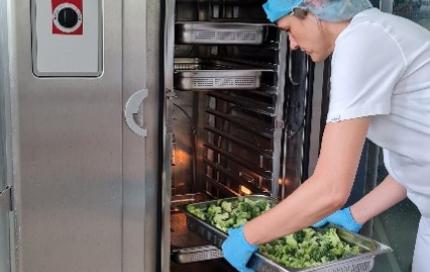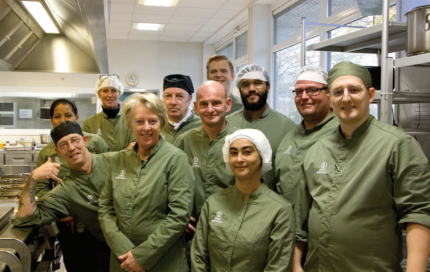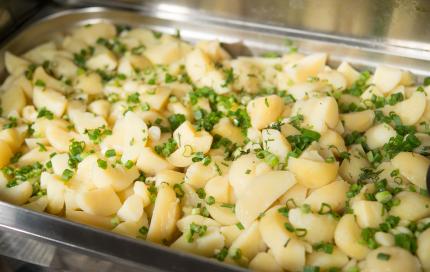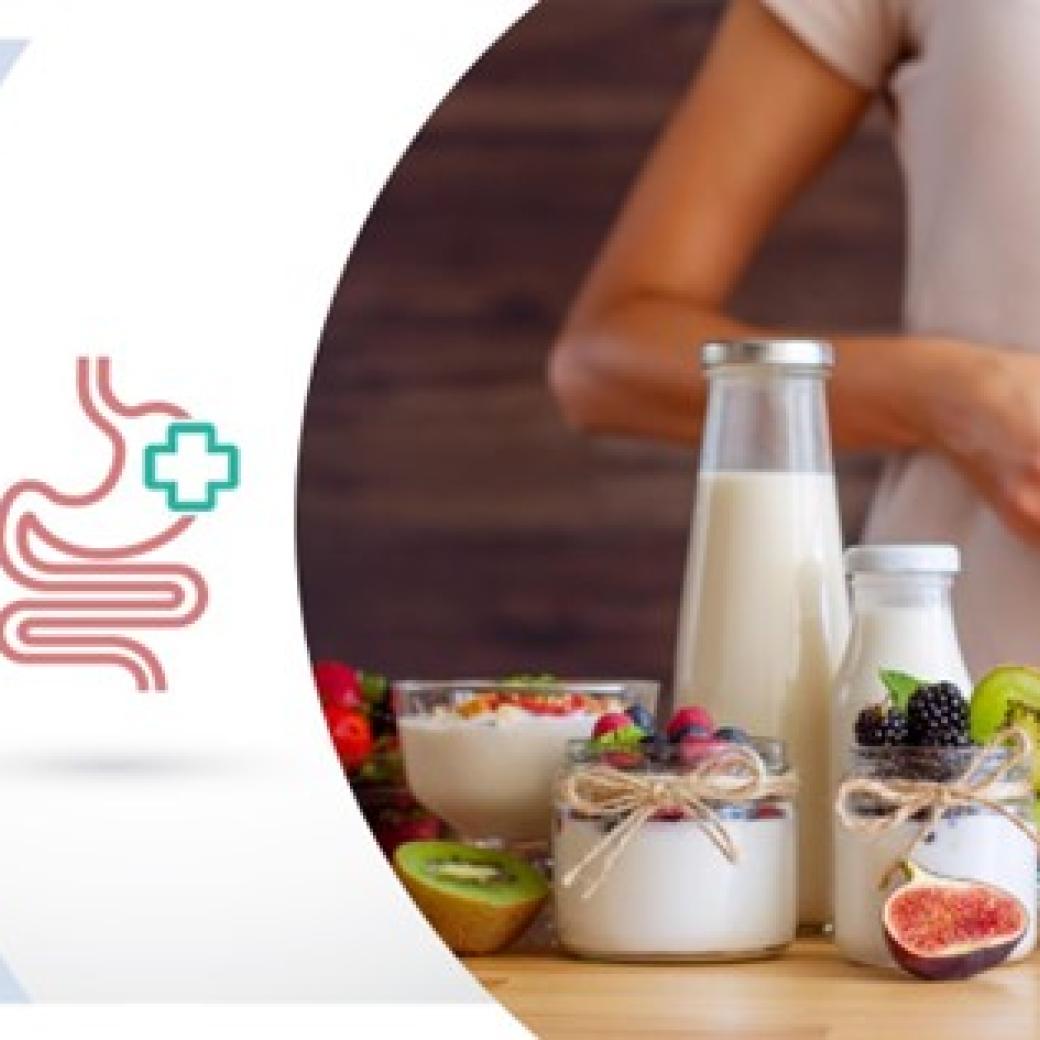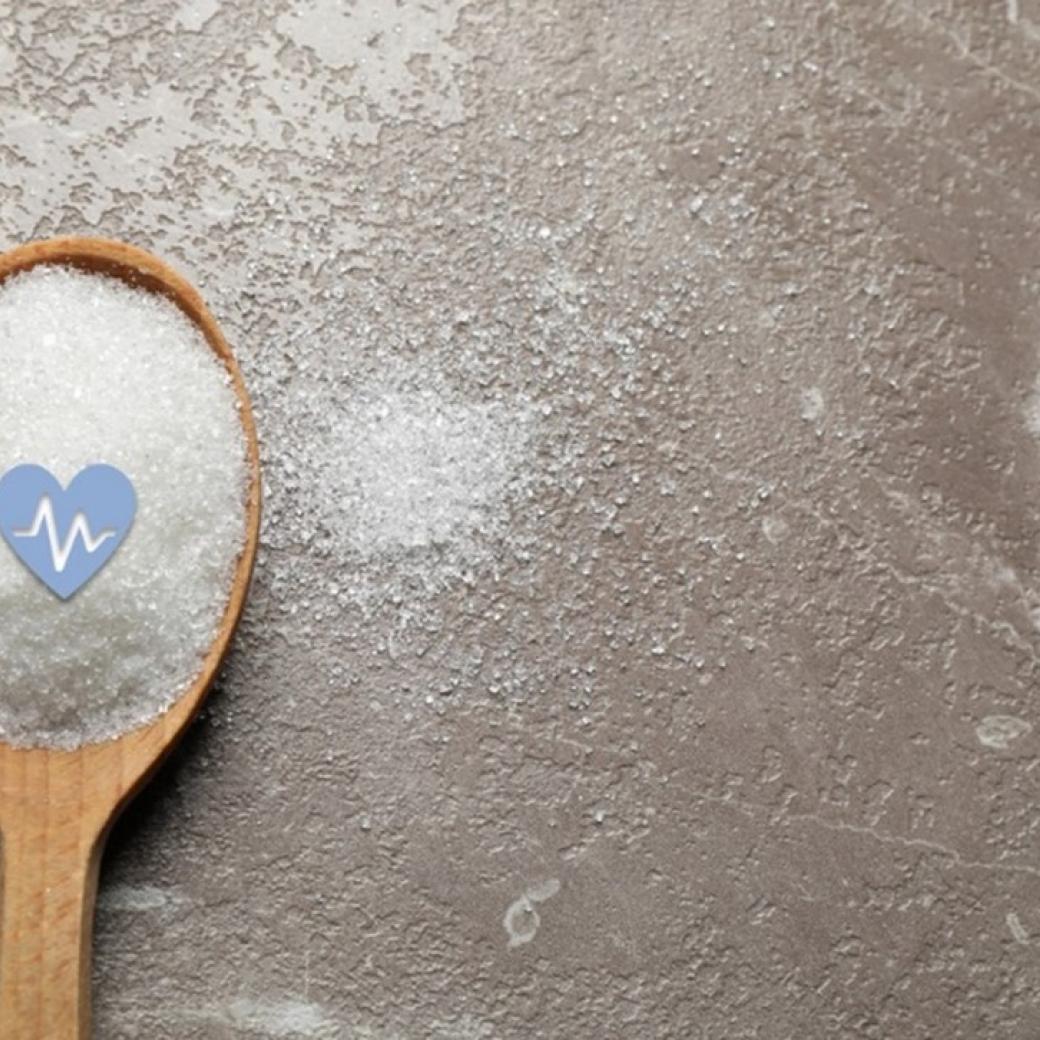FoodCare
With support of:


Developing methodologies to optimise meals and meal components based on the specific nutritional needs of consumers
Why this project?
Assembling daily meals adapted to care patient needs is a challenge that every industrial kitchen cooking for a care institution faces. An additional challenge is getting those meals to people while delicious, nicely presented, on time, and warm. The current trend towards personalised nutrition, tailored to the end user’s needs and preferences, is significant for every actor in the meal production chain.
However, special nutritional needs are not limited to the elderly and those suffering from chronic conditions. More and more consumers are becoming aware of the importance of, and concerned about their personal nutritional needs. It makes delivering meals that meet the needs of the final consumer a challenge, not just for healthcare facilities, but for other institutional kitchens, and by extension for all actors involved in the food production chain, as well. However, the problem encompasses more than providing meals that contain the right nutritional components. Meals also need to be sufficiently tasty, have the right texture and, of course, meet the mandatory food safety criteria.
There is already plenty of knowledge about the positive impact of balanced and adapted diets on health. Making that positive impact a reality though, is only possible when every actor clearly understands how to adapt their processes and products. Essentially, the current knowledge still needs to be translated into concrete practical guidelines. These guidelines may concern modifying the choice of ingredients, adapting recipes, the parameters of production processes, shelf-life and packaging techniques. However, it also concerns logistical processes such as storage, transport, and the distribution of meals.
Methodology and results
FoodCare was a collective research, development, and dissemination project (COOCK type) with the objective of developing a generalised, repeatable, and scalable methodology for the preparation and adaptation of meals and meal components that respond to the consumers’ specific nutritional needs.
In FoodCare, together with NuHCaS partners ILVO and VIVES, methodologies were developed for optimising meals and meal components based on consumers’ specific nutritional needs. This closely involved all actors in the entire chain, from the raw materials to the hot meal that was served. To explore these optimisations, variations in preparation methods of broccoli, chicken, and breaded fish were tested and their effects on vitamin content, colour, moisture, texture, or crispness and nutritional composition were evaluated. This was substantiated scientifically with an experimental design, the results of which can be translated into practice. An economic approach to catering in healthcare was also embedded. It also explored how a mashed potato can be enriched with protein to increase its nutritional value.
The attached video gives you a look behind the scenes of the project and, together with Kanaal Z, we nicely portrayed how a healthcare actor, a food company, and a technology company got to work with the results of this COOCK project.
During the lifetime of the project (1 January 2021 to 31 December 2023), we set up two events with NuHCaS highlighting the FoodCare project. On 15 September 2022, during the NuHCaS event ‘smarter eating in healthcare’, the first results of the project and demonstrations of interesting and innovative examples provided inspiration on how the actors involved can get started themselves. You can read about it here.
A year and a lot of new results on, we organised the NuHCaS event on 23 November, where FoodCare also had its closing event. The report on this, ‘How can the food and healthcare sectors work better together for a healthier consumer’, can be found here.
Access to the project results
Learn more about how to approach an improvement journey, and how to find optimal conditions and results, in our articles in the radar (see below) or on https://www.nuhcas.be/foodcare/.
Target group
The results of the project mainly target food processing companies and their suppliers, which can then employ the knowledge and information gained to adapt their processes and recipes to the end user’s needs.
We also focus on (care) organisations that produce meals for special target groups. That could mean hospitals required to provide many meals a day for several different target groups, all with different nutritional needs. But it could just as easily cover residential care centres for the elderly, which have a different set of specific needs. A central kitchen is frequently used to produce for different centres and different target groups. The results of this project also include the logistical step (transport, storage) between these different centres. Some institutions prepare their own meals, however, a significant number rely on external caterers and food service companies that offer ready-to-eat meals or meal components.
Follow-up actions
Together with FoodCare’s partners and imec, we launched the new COOCK FINE (Food Intake Ecosystem) project on 1 March 2024. In this project, the challenge is to use an existing tool to measure food consumption to explore what is needed to link food intake to health data within a health data space.
Project partners
Flanders’ FOOD managed and coordinated the project. The project was executed in collaboration with VIVES University and ILVO (Flanders Research Institute for Agriculture, Fisheries and Food).
The FoodCare project was the initial brainchild of the cooperation initiative Nutrition Health Care System (NuHCaS). NuHCaS takes a systemic approach towards uniting the food, health and care sectors in the pursuit of knowledge development and research on how food affects our health.
